



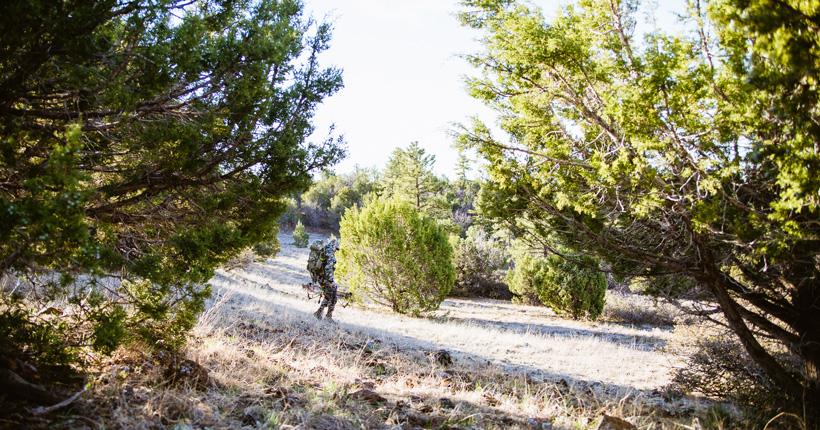
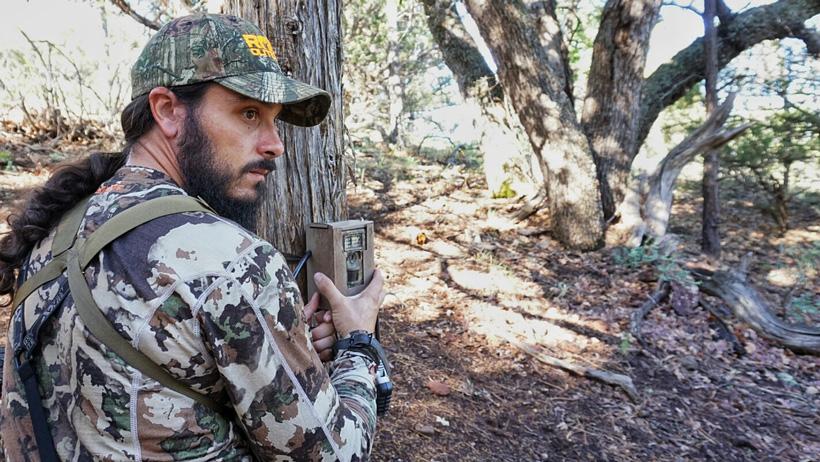
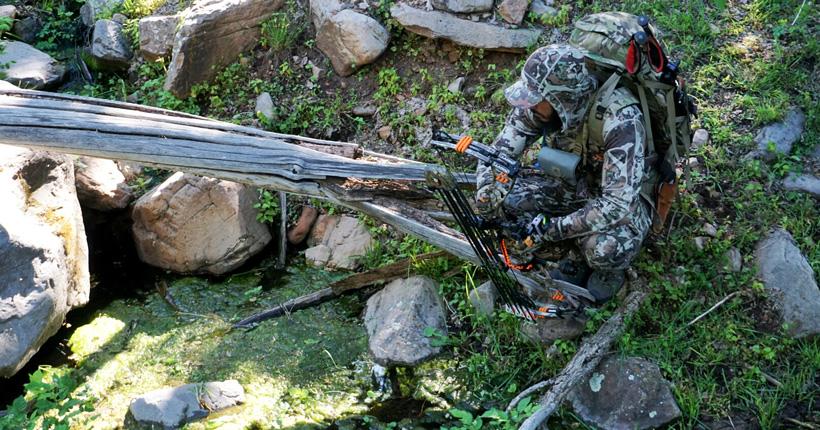
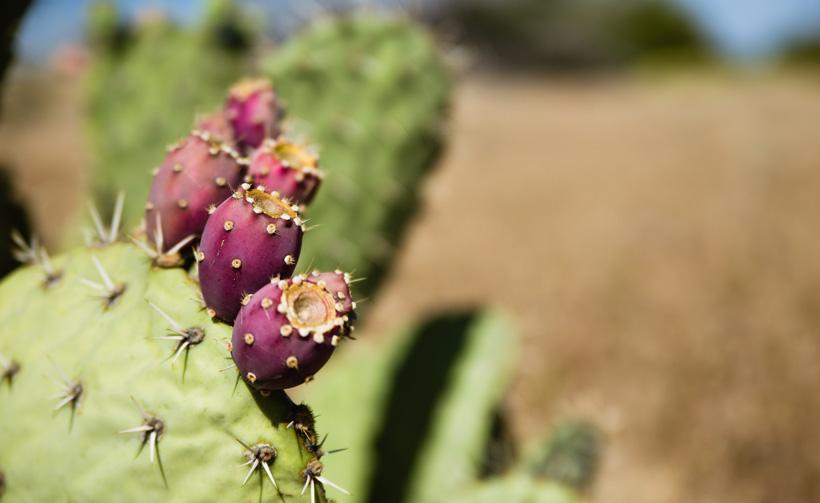

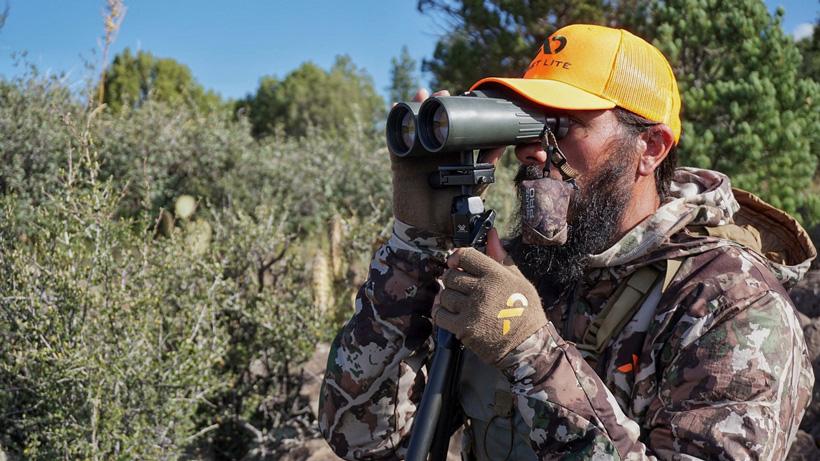
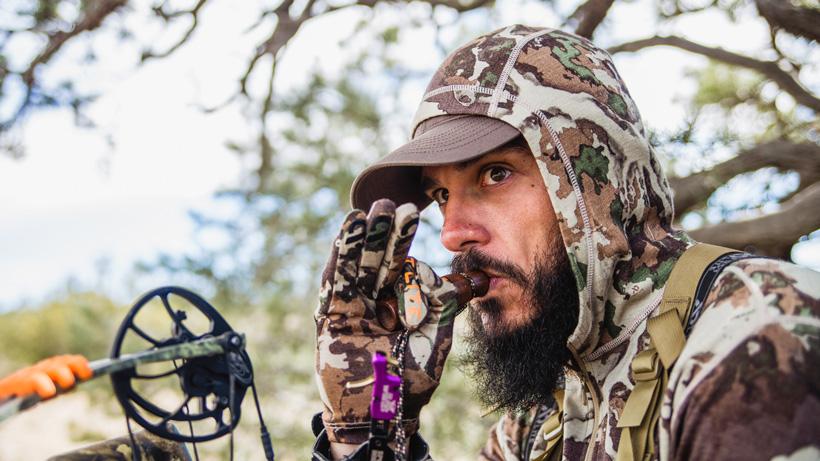
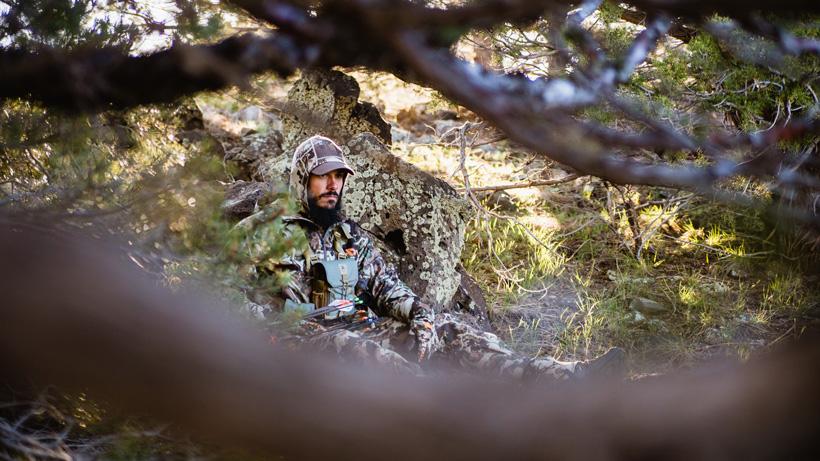
Have you ever dreamed of hunting black bears in the scalding hot heat surrounded by tons of cacti? If you said, "yes," I would be surprised. Arizona has several long seasons starting in the spring and going through the end of Decmember. When anyone thinks of chasing these bruins, they probably imagine sitting on some sort of bait while either elevated up in a treestand or down in a ground blind and for good reason. Those are both extremely effective and proven ways to kill a black bear. To most, that is common thought. To me, it just isn't. Here in Arizona, we aren't allowed to do that. If you want to hunt bears here, you are going to be restricted to spot and stalk, ambush (no bait allowed), or by hunting with predator calls. Note: both mouth calls and electronic calls are legal for bears. You can also hunt them with hounds. Hound hunting is a great way to kill a bear, but not everyone has access to dogs so I will focus on the other methods in this piece.
Your bear adventures in my great state are going to prove more fruitful if you can make it out and do some scouting. In my opinion, scouting for bears in Arizona involves finding three things: water, food, and rugged country. As far as what elevation to focus on, that really depends. Arizona bears can be found anywhere from 2,500’ to 10,000’. Where they end up in a given year depends on how our moisture levels are, which correlates to how much food there is and where it is. These bruins will travel a long ways for food during certain times of year if they need to. The same is true on the opposite side of the spectrum: If a bear has everything they need in one canyon system, there is no reason for that bear to leave.
With our hot temps, finding water is going to be a must. Bears love it. They will lay in it, sleep in it, swim in it, and drink it (of course). The best kind of water sources to look for are springs or monsoon build up in the bottoms of our rugged canyons. That’s because of two things. The bears not only have water, but they also have a secluded and safe place to take advantage of it. You can definitely find bears on a lot of our man-made stock tanks, but I believe the majority of our bears focus on the secluded water sources where they feel the safest. Water in Arizona can be very hard to come by. If you find a pool of water in the deep, dark depths of a nasty drainage surrounded by tons of food you may have just found a gold mine. This is also going to be the best place to look for tracks since there is often mud at the edge of these water sources.
This is a big one and might even be the biggest one. The saying here in Arizona is "find the food and you will find the bears." I can't say that enough to people. The tough part about it is that sometimes certain food sources aren't there and the only way to know if they are is to lace up your boots and get moving. If you are out and about in our bear country and are not seeing any food sources, move on. Don't bother looking in these areas because there is no reason for a bear to be there. The food sources that you are going to want to focus your efforts on finding are going to be manzanita berries, juniper berries, acorns and, of course, prickly pear cactus fruit. Yes, our bears love their pears. If you are lucky enough to be hunting on a "bears in the pears" year, then you are in for a real treat. I've heard accounts of people seeing up to 10 bears on one hill—all feeding on pear fruit. It's a sight to behold and one to add to your list if you are an avid bear hunter.
Glassing is my preferred method for finding bears. Once you have done your homework and have found a reliable food source, try to find a vantage point where you can see a good amount of country and start grid searching those hillsides with your optics. If you can place yourself above and are able to see into the bottoms of our canyons, that’s even better. Canyon bottoms, to me, are like bear highways. Like I said above, they also tend to have pools of water in them here and there, which are perfect for a bear to take a bath during the heat of the day. During the earlier fall seasons in August and September it is imperative that you are in your glassing spot before the sun comes up. Because of the heat the bears will likely only be moving at first and last light. I'd start looking at south facing slopes first thing in the morning and then switch to north facing slopes afterwards. South faces tend to have more food while the north faces seem to offer the best cover for bedding. My thinking on this shifts a bit as the season continues into October through December. When it does, I glass all day. Bears will be moving throughout the day feeding and putting weight on for the coming winter. If you aren't out there to see them, then you just plain aren't going to see them.
Predator calling for bears is something that has intrigued me ever since I got into bear hunting. In this situation, you are the bait. You are the one ringing the dinner bell and hoping that a hungry bear is in earshot of your call. When I tell some folks that I do this, I often times get a funny look and a remark somewhere in the realm of, "Are you crazy?!" Maybe I am, but what's life without a little adventure?
When calling for bears, you are going to want to setup and plan to be calling for at least 30 solid minutes at each of your stands. Sometimes you should plan to call for 45 minutes to an hour. Bears tend to have a short attention span and if you stop calling for longer than 20 to 30 seconds, they are likely to get distracted by some other food source. In your setup, be sure you have a sufficient backing. Although big, a bear can slip in very quiet and could come in behind you, thus, posing a threat—not to mention that you could be calling in the occasional mountain lion. Remember: you are ringing the dinner bell. If they are coming, they are hungry and you need to be ready!
As far as what kind of call to use, I prefer hand calls. Any rabbit distress or fawn distress call is sufficient. An avid caller and bear hunting mentor of mine believes that hand calls are more effective than electronics. He believes this simply because you can instill more emotion in your calling sequences with a hand call versus having a recorded loop play over and over again. That's not to say that electronics don't work; I assure you they do, but bears are very intelligent and not all of them are going to be swayed by an audio track.
Ambush hunting is a very popular and practical way to harvest a black bear anywhere. Most of the time, it's over bait, but Arizona doesn't allow that. This is where your homework is gonna kick in. I highly suggest running trail cameras if you plan on ambush hunting. Find a secluded water source or likely travel corridor to setup your cameras. Bears can be very nomadic so running cameras is going to give you the edge if you have a bear coming into a certain spring on a regular basis or if they just happened to walk by one time in the past month. For that reason, I would recommend scouting out a few different areas to put cameras up. On a dry year, setting up a treestand or ground blind on water can be absolutely deadly for bear hunting. The trick is finding the right water source, though. In one canyon, you might not get any bear activity. The next canyon over could be loaded with bears. Having a few different areas to sit is going to be ideal just in case the bears stop to use the spot you happen to be in.
Black bear hunting in Arizona offers a unique experience and one that you won't forget— whether you are successful or not. On my first bear hunt, I had no idea what to look for or what I was doing at all for that matter. Somehow, I lucked my way into just seeing a bear and it was all over for me once that happened. I was addicted and my addiction seems to grow with every season as I learn more and progress as a hunter. In my four years of bear hunting, I have been fortunate enough to wrap my tag around an Arizona bruin twice. The journey to punching my first bear tag was a rough one, but I wouldn't trade it for anything. Through that struggle, I learned a lot and I hope with the information I have provided you will be one step closer to your Arizona bear hunting goals. Stay safe, stay hydrated, and stay persistent.
You can read more about the over-the-counter black bear hunting opportunities in Arizona by checking out this article here.